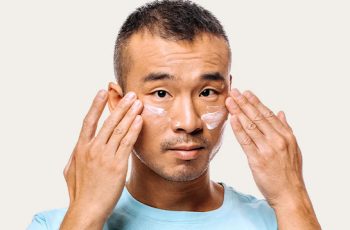Allantoin
Allantoin is a leaf extract of the comfrey plant found in Europe and temperate areas of Asia. For several years, potent healing and soothing properties have been attributed to this anti-inflammatory skincare ingredient.
Allantoin is the main ingredient in comfrey- which has been used as a poultice for centuries to treat minor fractures by reducing swelling in the area of the break. The long-standing anecdotal evidence supporting the beneficial activity of allantoin led to some acceptance by the medical community in the early part of the 20th century.
Where does allantoin come from
Allantoin Skin Care Products:
Allantoin is found in skin care products to soothe and calm skin. It is an affordable natural ingredient that is safe and meets clean beauty standards.
Allantoin To Soothe and Calm Skin
Allantoin is an anti-inflammatory ingredient.
It can be used in the following inflammatory skin conditions:
Acne- Helps get rid of the redness from pimples, papules and pustules and make the red marks from acne go away faster.
Sensitive Skin- Allantoin is found in many anti-inflammatory skincare products intended to soothe and calm skin.
Rosacea- Helps prevent and treat facial redness.
Eczema- When combined with barrier repair moisturizers will help sooth eczema prone skin.
Psoriasis- Helps calm and soothe itchy skin from psoriasis.
Allatoin
Allantoin for Acne
Allantoin has benefits for acne-prone skin due to its soothing and healing properties. Derived from the comfrey plant, allantoin is known for its ability to promote skin regeneration and repair. When applied to acne-prone skin, allantoin helps to reduce inflammation and redness, calming irritated skin. It also aids in the gentle exfoliation of dead skin cells, unclogging pores, and preventing further breakouts.
Allantoin’s moisturizing properties help maintain the skin’s natural barrier, preventing excessive dryness that can occur with certain acne treatments.
Allantoin For Eczema
Allantoin is a beneficial ingredient to treat eczema due to its moisturizing, soothing and healing properties.
When applied to eczema-affected skin, allantoin helps to alleviate itching, redness, and inflammation, providing relief to irritated and sensitive skin.
Allantoin is considered a humectant. It is not a barrier repair ingredient. Eczema sufferers should combine allantoin with barrier repair ingredients for the best results treating eczema and dry skin.
Allantoin for eczema
Allantoin for Hyperpigmentation
Allantoin is a versatile skincare ingredient known for its skin-lightening benefits. It helps treat hyperpigmentation in several ways.
Exfoliant
Allantoin works by promoting cell turnover and exfoliation, helping to fade hyperpigmentation and dark spots over time. By encouraging the shedding of dead skin cells, it reveals fresher, more even-toned skin underneath.
Anti-inflammatory properties
Allantoin blocks inflammatory pathways reducing inflammation. Inflammation is well known to increase skin pigmentation.
When combined with other skin lightening ingredients and used consistently in a skincare routines to lighten dark spots, allantoin is a good choice to even skin tone.
Allantoin For Melasma
Allantoin has weak skin lightening effects due to it’s anti-inflammatory properties that help prevent pigmentation. It can be used for melasmabut should be combined with stronger skin lightening ingredients such as tyrosinase inhibitors.
Allantoin for melasma
Allantoin gel vs Cream
Allantoin is an excellent ingredient for formulating gels due to its humectant and hygroscopic properties. As a humectant, allantoin attracts and retains moisture from the surrounding environment, keeping the skin hydrated and plump. Its hygroscopic nature allows it to hold onto water molecules, preventing moisture loss and maintaining optimal skin hydration levels. These properties make allantoin an ideal choice for gel formulations, as it creates a lightweight, water-based texture that provides a cooling and refreshing sensation upon application. The gel’s ability to deliver deep hydration without a greasy or heavy feel makes it suitable for various Baumann Skin Types.
In creams, allantoin is typically combined with oils and fatty acids to create a more luxurious texture with better hydrating abilities.
The best cream with Allantoin is Zerafite Soothing and Calming Moisturizer.
Allantoin Side Effects and Safety
Allantoin is generally considered safe for topical use and is well-tolerated by most individuals.
It has low potential for causing adverse effects when used in skincare products.
The Cosmetic Ingredient Review (CIR), has evaluated allantoin and concluded that it is safe for use in cosmetic and personal care products when used within specific concentrations.
The Environmental Working Group (EWG) assigns allantoin a low hazard score of 1, indicating that it is not considered to be a significant health or environmental concern.
Overall, allantoin is a safe and well-tolerated skincare ingredient. It meets most clean ingredient standards.
DQH Knowledge drop: In your 20s, your skin cell turnover decreases. (Cell turnover is a key component in keeping your skin youthful.) You know what else slows down? Your collagen production. Starting in your 20s, collagen decreases by about 1 percent per year. Should you want to prevent fine lines and wrinkles, start by eliminating behaviors that contribute to premature aging. “If it’s bad for you, it’s bad for your skin,” says dermatologist Michel Somenek.
“Cigarette smoking reduces blood flow to the skin and causes premature wrinkling and a dull skin texture. Making the repeated pursed motion to inhale can also cause smoker’s lines. Alcohol and recreational drugs are toxins for the skin that damage its cellular structure and DNA,” Somenek tells us. “The faster you eliminate vices while you are young, the better chance your skin and body have to recuperate.” Also, adopting an anti-aging routine in your 20s is key. After all, the best offense is a good defense. We spoke to Somenek and experts Joshua Ross and Audrey Kunin to find out more.
Keep reading for the best anti-aging products for your 20s, according to skincare professionals.
Sunscreen
“We all know that the sun is the number one cause of skin aging and starting the prevention in your 20s is very important,” Ross says. “The majority of your sun damage won’t start to appear until you’re in your 30s, so don’t wait until you see it surface or you’ll be behind the curve. Stay ahead of it with a good-quality zinc-based sunscreen worn daily.”
Farmacy Green Defense Daily Mineral Sunscreen
An invisible sunscreen with SPF 30, plus botanical extracts meant to protect skin with tons of antioxidants. Bonus: It’s clean and fine to use under makeup.
Bareminerals Complexion Rescue™ Tinted Moisturizer Broad Spectrum SPF 30
Although we recommend you use your SPF and moisturizer separately, we also understand moments when you don’t have time or energy for that extra step. For those times, this bareMinerals moisturizer is a great thing to have on hand.
Vitamin C Serum
“A great introduction to anti-aging is to start with a vitamin C serum in your morning skincare routine,” Ross says. “It’s a powerful antioxidant that will neutralize free radicals and brighten the skin.” He adds that it’s a great way to counteract the effects of the sun’s harmful rays, which, as previously mentioned, are among the biggest causes of premature aging.
Drunk Elephant C-Firma™ Vitamin C Day Serum
The Drunk Elephant C-Firma is a lightweight serum that promises to give skin a glow by combining the brightening powers of vitamin C with ferulic acid, l-ascorbic acid, and vitamin E. The included sodium hyaluronate is meant to replace hydration loss, so you shouldn’t have to deal with any irritation.
Sunday Riley C.E.O. Rapid Flash Brightening Serum
This potent serum is jam-packed with vitamin C (15 percent, to be exact), which means it’s a potential superstar at both brightening skin and dousing it in antioxidants.
Peptides
Using peptides on your skin has many benefits, says Somenek. “The skin barrier is what defends the body against pollution, UV rays, bacteria, and toxins. It can be damaged by several everyday factors. Using topical peptides aids in building a stronger barrier,” he says. “Peptides comprise elastic fibers, which are a type of protein. These fibers help to make skin appear taut and firm. Peptides can also help repair damaged skin, relieve inflammation, and even out skin tone. Some peptides can kill acne-causing bacteria that is common in 20-somethings.”
Kunin agrees, saying, “Peptides are an excellent entry point for supporting collagen.” She recommends looking for face and eye treatments that contain these collagen-boosting powerhouses.
Charlotte Tilbury Magic Eye Rescue Cream
This Charlotte Tilbury super-emollient eye cream has a base of coconut oil and shea butter (read: it’s incredibly hydrating). Botanicals plus peptides are meant to help reduce dark circles and boost collagen, respectively.
This creamy moisturizer serves up potent collagen-boosting peptides and pycnogenol, and antioxidant-rich vitamin C. “Instead of sitting on top of the skin, peptides penetrate the outer layer so they go deep. The ‘signals’ they send tell the cells to produce elastin and collagen, which are needed for youthful-looking skin,” explains Somenek.
At-Home Peel Pads
Remember that skin cell turnover fiasco we talked about earlier? One way to help support it is by exfoliating. “Exfoliation is important to help keep skin fresh and luminous,” Kunin says. She recommends using at-home peel pads as an easy and effective way to exfoliate.
“The goal in your 20s is to fight the slowing pace of cell turnover. It is wise to use products that gently exfoliate, yet still remove oil and other impurities. Products that have Alpha Hydroxy Acids (AHA) or Beta Hydroxy Acids (BHA) are a good choice.”
According to Somenek, you should only exfoliate two to three times a week. “People of all ages are guilty of over-exfoliating and that can be too much of a good thing,” he says.
Dermadoctor Kakadu C Intensive Vitamin C Peel Pad
A few swipes of this Derma Doctor powerful peel pad promise to leave your skin glowing and smooth, thanks to the seven (yes, seven) types of chemical exfoliants, including AHA and BHA. It also contains vitamin C via Kakadu plum extract for added brightening and antioxidant protection.
KEY INGREDIENTS Kakadu plum extract is sourced from the Kakadu plum, a fruit grown in northern Australia. It contains vitamin C, which restores the skin’s natural barrier, increases collagen production, and soothes irritation.
Dr. Dennis Gross Skincare Alpha Beta® Universal Daily Peel Pads
These are the gold standard of peel pads, with a cult following and over 900 five-star reviews on Sephora. They’re easy to use and contain a blend of anti-aging exfoliating acids.
Emollient Night Cream
“In your 20s, you need to start upping the hydration in your skincare routine. You may have been cautious of over-moisturizing because of acne in your teens, but as you enter your 20s, your skin transitions and becomes drier,” Ross says. “I recommend an emollient night cream added into your evening skincare regimen.”
“Twenty-somethings need to make sure that they are not using creams that will clog their pores and cause excess oil production,” says Somenek. Opt for non-comedogenic products.
Cerave Skin Renewing Night Cream
One great choice is the CeraVe Skin Renewing Night Cream, which is a non-comedogenic night cream that leaves skin soft and glowy. It combines the moisturizing powers of ceramides and hyaluronic acid.
RoC Retinol Correxion Max Hydration Creme
“The best night cream ingredients contain retinol, benzoyl peroxide, and/or salicylic acid or hyaluronic acid. The goal is to moisturize, yet remove excess oil,” says Somenek. This Roc Retinol Correxion cream fits the bill as it contains both hyaluronic acid and retinol so it promises to moisturize while also being non-comedogenic.



